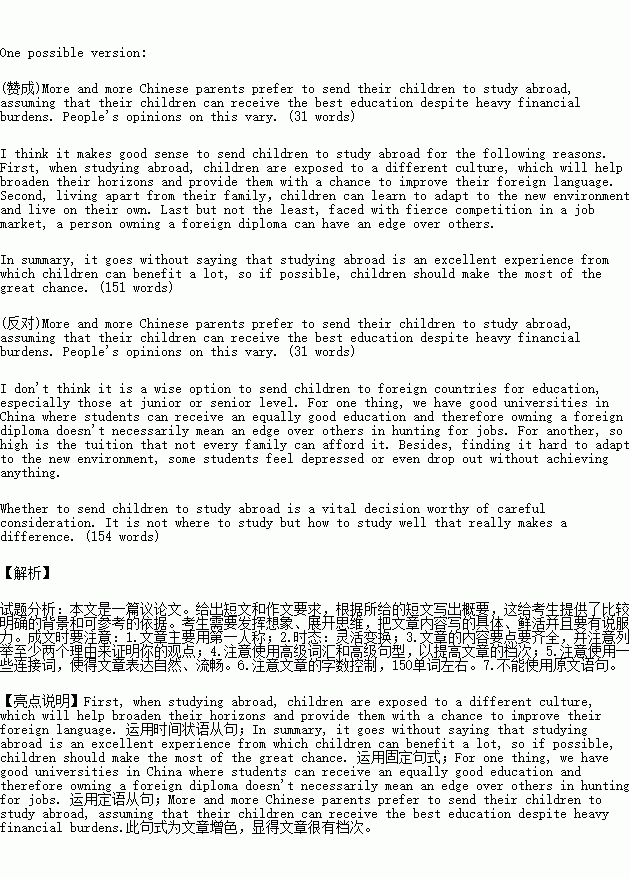题目内容
阅读下面短文,并按要求用英语写一篇150个词左右的英语短文。
Editor's note: China is the top country of origin for international students in the US, with more than 274,000 Chinese students reportedly accounting for 31 percent of all international students at US universities. Many Chinese parents save up a lot of money for their children to pursue an overseas education. Is it worth spending big to study abroad? You are welcome to leave your comments.
Arsa (Russia): I went to study abroad when I was 17. First year was a total waste as I met plenty of Russian students in my college and we spent most of our time shopping and hanging out at cafes, it wasn't until two years later that I realized that my English hadn't improved. I changed my mindset entirely and started studying hard. I ended up staying in UK for 10 years, which opened a lot of doors and introduced me to great people, so I'm all for studying abroad.
Truth (US): There is an assumption that American education is the best in the world, so Chinese parents are pushing their kids to American colleges. And some are even sending their children overseas at junior or high school level. I often feel this is a mistake as the education a Chinese child gets in a foreign country is very different from what they are used to and they often struggle. Some students have trouble understanding their lecturers and their assignments keep coming back with poor scores.
【写作内容】
1. 用约30个单词写出上文概要;
2. 用约120个单词发表你的观点,内容包括:
(1)支持或反对“国外留学”;
(2)用2至3个理由或论据支撑你的观点。
_______________________________________________________________________________
_______________________________________________________________________________
_______________________________________________________________________________
_______________________________________________________________________________
_______________________________________________________________________________
_______________________________________________________________________________
_______________________________________________________________________________
_______________________________________________________________________________
_______________________________________________________________________________
_______________________________________________________________________________
_______________________________________________________________________________
_______________________________________________________________________________
 云南师大附小一线名师提优作业系列答案
云南师大附小一线名师提优作业系列答案 冲刺100分单元优化练考卷系列答案
冲刺100分单元优化练考卷系列答案
